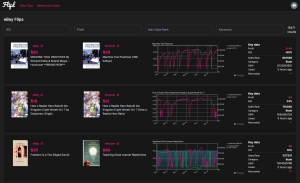Backlinks act as the backbone of a successful SEO strategy. And then again, all backlinks cannot be treated equally. Quality cannot be compromised, as building some can just hamper your reputation. Google has become very smart, and any suspect link-building schemes are quickly flagged and penalized. So, the question is-how to get quality backlinks without any penalty?
Here, we discuss techniques to ethically and effectively gain backlinks that increase the authority and ranking of your website without jeopardizing its existence.
Why Backlinks Still Matter in 2025
Each time a link to a site gets counted as a trust vote. However, the links do not confer quality, which means while a backlink is a vote of confidence, the actual content must deserve it. A link from one site can firmly augment the importance of a website on a search engine. And the more sites that link to a domain, the more important it seems to become.
Interestingly, 33% of marketers believe backlinking has the greatest impact on SEO performance, reinforcing its ongoing relevance in modern search strategies.
The same cannot be said- quality links matter much more than just a quantity of links. A handful of high-quality links from relevant sites will be more powerful than dozens of low-quality links from irrelevant sites. Therefore, one crucial factor that guarantees lifelong success in search engine optimization is knowing how to achieve respectable backlinks without ever being penalized.
Focus on High-Quality Content First
Ethical link-building is based on good content. If your site has something worth sharing—thoughts, statistics, tools, or resources—it can earn natural backlinks and even support efforts like local citation building, where high-quality local mentions strengthen online visibility.
How to create link-worthy content:
- Publishing original research or industry statistics
- Writing in-depth how-to guides
- Providing free templates and tools
- Explaining complex topics upfront with infographics
Outreach works far better when you have something genuinely useful to offer.
- Pro tip: Use tools like AnswerThePublic to find what people are searching for in your niche.
Leverage Guest Posting (The Right Way)
Using guest posting can still be successful and worth it when applied correctly. A no-no is sending small articles in bulk to low-quality directories. Instead, search for worthy blogs in your niche and provide them with excellent content.
Tips for doing so safely:
- Pitch only to sites with actual traffic and a strong domain rating
- Make sure the blog is relevant to your industry
- Put backlinks naturally and contextually into the content
- Avoid using exact match anchor texts too much
For example, on a marketing site, you can enhance user experience and SEO by placing a helpful link to a case study on email automation tools. As one expert from a top lawyer SEO agency points out, guest posting works best when you focus on relevance over volume. Contributing insightful, niche-specific content to respected publications not only earns you safer backlinks but also strengthens brand authority in your field.
Try HARO and Similar Platforms
Help A Reporter Out (HARO) bridges journalists with expert sources. A quote in the media almost always earns you a do-follow link from a high authority site.
Other sites like Terkel, SourceBottle, or Qwoted may provide the same sort of opportunities. Just keep them short, expert, and relevant to the question.
Bonus: Your responses also add value to your brand’s authority and help position you as a thought leader.
Use Internal Linking to Maximize Link Equity
Although technically not an external backlink, internal link-building tactics transfer authority from your website pages to each other. This also keeps users engaged, with an increasingly concrete site structure-what Google loves.
Some internal linking best practices:
- Link related blog posts and service pages
- Make use of descriptive anchor text (although avoid over-optimization)
- Keep the user experience in mind
Having content within multiple areas of a website signals to search engines that it is important.
Repurpose and Promote Evergreen Content
Transform your best content into different formats to gain other backlink opportunities:
- Blog posts should be converted into YouTube videos.
- Gear SlideShare presentations towards lengthy articles.
- Turn research into whitepapers or reports.
Promote these offers on LinkedIn, in Facebook groups, and on relevant subreddits, because the more people know about it, the more chances it has at earning organic backlinks.
Fix Broken Links (With a Twist)
Use Ahrefs or Broken Link Checker to identify broken outbound links on other sites within your domain. Then contact the webmaster and suggest replacing those links with your relevant resource.
This technique:
- Enhances the webmaster’s user experience
- Offers you a natural, helpful backlink
- Fosters goodwill in your niche
Ensure the replacement link is contextually relevant to the original content.
Avoid These Risky Link-Building Tactics
Before going through what to do to build quality backlinks without worrying about penalties, here are dastardly things you should never do:
- Private Blog Networks (PBNs)
- Link farms or tools that automate link building
- Over-optimizing anchor text (e.g., “best digital marketing agency“)
- Comment spam or forum links with absolutely no value
- Getting links from unrelated or low-authority sites
Google’s algorithm has since been designed post-Penguin update to penalize those trying to manipulate link-building processes.
Track and Analyze Your Backlink Profile
Always audit your backlink profile using tools like:
Look for:
- Big spikes in link velocity are sudden (perhaps unnatural activity)
- Toxic/spammy referring domains
- An anchor text is overused for a large number of domains
Disavow the bad backlinks; however, you should give it a thumbs-down only when it is sure they violate Google’s guidelines.
Conclusion
Building finesque link is not about shortcuts. It is about giving value, nurturating genuine relationships, and white-hat SEO practices.
- When done ethically, link-building will:
- Help raise your search ranking
- Provide referral traffic consistently
- Help to build your site’s authority and trustworthiness
Focus on value, relevance, and transparency – the links will follow.








